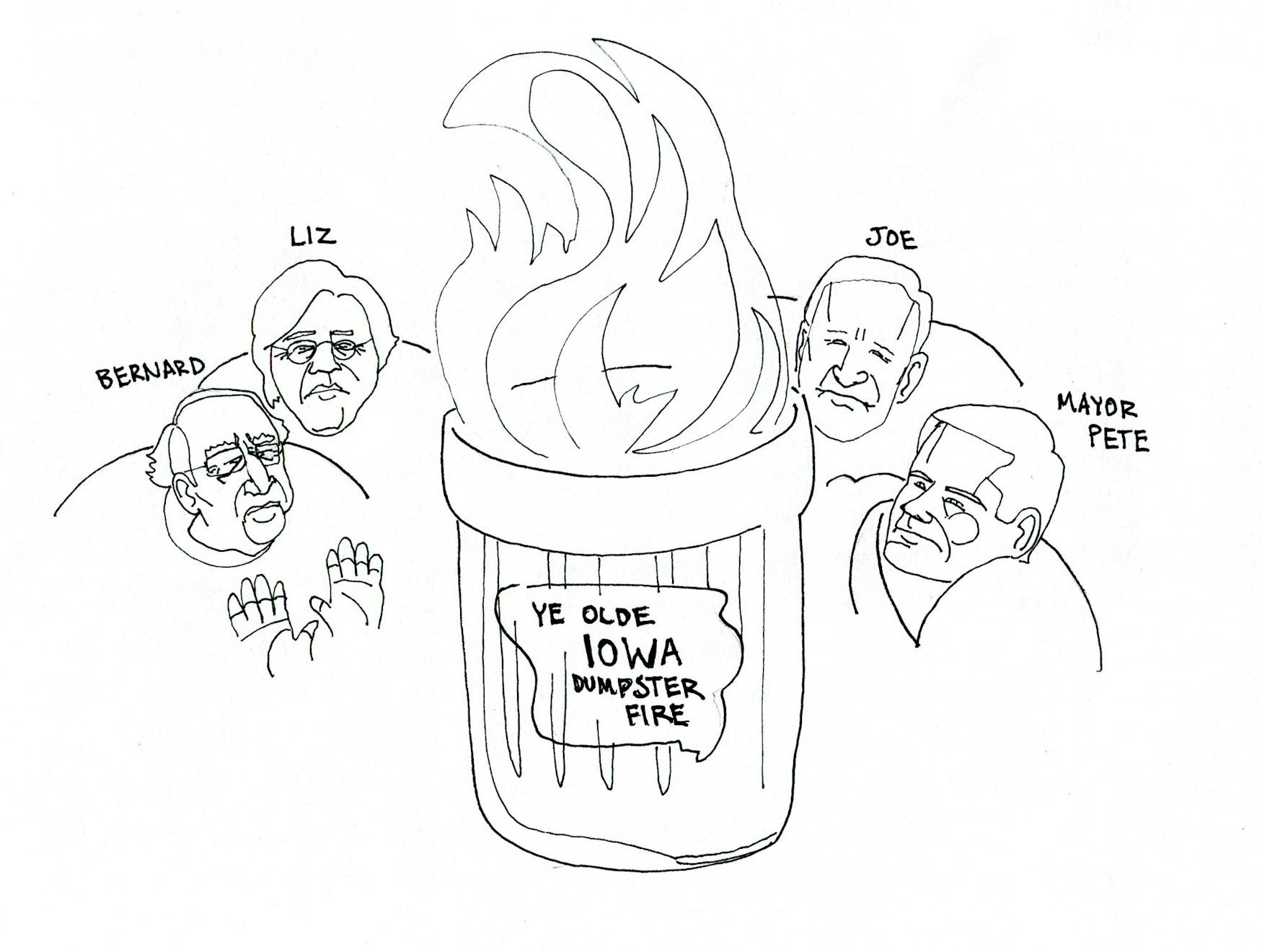Iowa Caucus debacle: The good, the bad and the ugly
As of Feb. 9, only two days before the New Hampshire primary, there is still no officially announced “winner” of the Iowa Democratic Caucuses. Nevertheless, it seems as if the campaigns have moved on, with the fallout from Iowa likely cemented no matter what the candidates might have to add a week later. What is interesting, however, is what that fallout — either predictably, or unpredictably — might be.
It seems clear, regardless of what partisans of any camp may have to say, that President Donald Trump could hardly have penned a more farcical Monty Python skit with which to mock the Democrats than the scenario that played out over the past week. Early on, there was an initial data dump of very few precincts, which hardly changed for an hour or so. There were initial reports of irregularities and delays in getting the correct data out, with reports that the results needed to undergo “quality checks.” Soon after, the initial data released on sources like the Associated Press, The New York Times and The Washington Post were erased, as if no votes had yet been recorded.
The delay created uneasiness, both in the television news media, which is always eager to have the results and project a winner, and with the more heavily invested segment of the general public who await the results as a bellwether for what is to come, as well as a potential influence on their vote. As the night carried on, the only reason given for the delay in releasing results was that an app commissioned to record the results and tabulate them more efficiently turned out faulty. Presumably, the app would have swiftly been abandoned, as there were results from a few precincts being reported live on television with correspondents in the room watching with cameras. The lack of complete transparency from the party apparatus, both in Iowa and nationally — albeit in what were surely hectic hours and days — only contributed to the chaos.
Not to be upstaged, the candidates tried to get in front of the chaos and steer the conversation in a favorable light for their own campaigns. Perhaps the most brazen example of this was Former South Bend Mayor Pete Buttigieg coming out late that night, with no officially confirmed results yet published, claiming “all indications suggest we will be heading to New Hampshire victorious!” The Sanders campaign followed by releasing their own internally collected data from around 40% of precincts, which purported to show their campaign comfortably ahead by about 5 percentage points. Needless to say, the lack of clarity and adequate due diligence by the party and media alike lent itself to a frenzied scramble by the campaigns to spin what was happening — or not happening — positively for themselves. Not only was there chaos, but the lack of understanding about what was going on both by the media and general public saw an online surge in conspiracy theories and people questioning the reliability of the data yet to be released. All of which was surely music to Trump’s ears.
Speculation aside, the fallout from the caucuses and the lack of closure surrounding it — it’s still technically an open case as the next state on the calendar is gearing up to vote — should concern Democrats. It has the potential to continue to splinter a party already bursting at the seams as its “big-tent” appears to be at capacity or overflowing between the establishment and the left.
Going forward, the party would do well in being more transparent with its constituents rather than leaving a void that conspiracists and even disingenuous agitators from the Republican Party can fill.
Supporters from all sides have a claim to take up with the Iowa Democratic Party and Democratic National Committee. First, the Sanders camp says it clearly won more votes, which it takes to be the real measure of a winning campaign, and that Buttigieg got off scot-free if not actually being boosted by claiming he won on the night of the caucuses. Buttigieg voters have the charge that he clearly outperformed polling and public expectations going into the race and was thus dealt a bad hand when otherwise favorable headlines may have been muddled by the chaos and controversy surrounding Iowa.
If polls are to be believed, however — despite underestimating Buttigieg’s support in Iowa — Buttigieg has enjoyed somewhere between a 7-8% rise in the Real Clear Politics polling average of New Hampshire since the Feb. 3 Caucuses. If there are any candidates for whom the whole mess seems to have ambiguous ramifications, it is the Biden and Warren camps, who finished fourth and third respectively. Biden fell from being one of the favorites among betting markets and media pundits alike to fourth behind Sanders, Warren and Buttigieg, which does not bode well for the candidate who centered his pitch on electability. However, it is equally possible that the confusion surrounding Iowa may have taken attention away from what otherwise seemed like a collapse in the perceived strength of the Biden campaign. Meanwhile, Warren seems to be stuck somewhere in the middle, having a solid third-place showing with easily the third most votes tallied in her name (20% in the final count). This is all to say that while Bloomberg and Trump may both be laughing — although for different reasons — it is unclear who was hurt by the entire fiasco, as it is not even clear yet who won the final “State Delegate Equivalent” count. But if the popular vote is anything to go by, Sanders appears the most unfortunate, as his popular vote victory seems to have been lost in the absurdity of the caucuses and the inept management of its fallout.



Please note All comments are eligible for publication in The Justice.